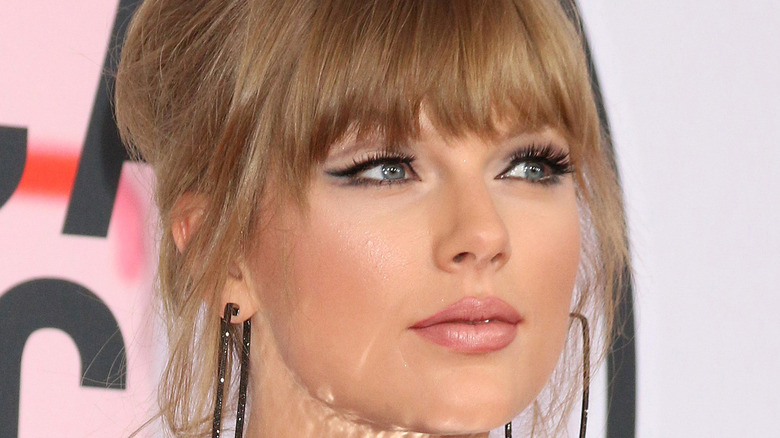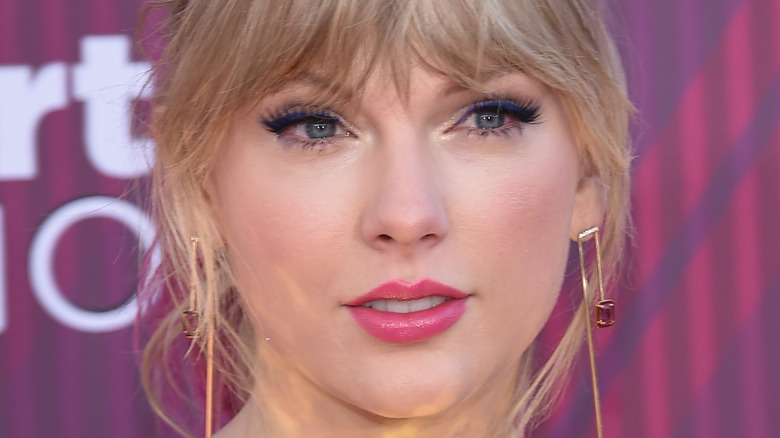The Real Reason Taylor Swift Is Being Accused Of Plagiarism
Widely known as one of the best songwriters in her generation, Taylor Swift has racked up hit after hit since signing her own publishing deal at 14 years old. Swift has amassed eight No. 1 singles on the Billboard Hot 100 Chart, including her most recent, "All Too Well (Taylor's Version)" — a 10-minute fan-favorite that broke the record for being the longest track to hit No. 1 in the chart's history, Billboard noted. The song was the first single off of her second re-recorded album, "Red (Taylor's Version)." Swift had previously re-recorded "Fearless (Taylor's Version)" as an effort to reclaim the masters to all her work.
As Swift continues to re-record her old albums, she'll also have to maintain her innocence in a 2017 plagiarism lawsuit filed against her for her song, "Shake It Off." The suit alleges that Swift copied the hook line from another song — an early 2000s favorite, as a matter of fact. Though the case was thrown out a year later, the decision has since been overturned, per BuzzFeed News. This is what that means for Taylor Swift.
Taylor Swift is accused of copying a 2000s R&B hit on Shake It Off
On December 9, a judge ruled that Taylor Swift will have to face a jury trial over accusations that she lifted some of the lyrics from "Shake It Off" from another track, per BuzzFeed News. Songwriters Sean Hall and Nathan Butler claimed that Swift copied lines from 2001's "Playas Gon' Play," which they wrote for the girl group 3LW.
The lyrics in question appear in the chorus of Swift's 2014 hit, in which she sings, "Cause the players gonna play, play, play, play, play" and "haters gonna hate, hate, hate, hate, hate." In "Playas Gon' Play," part of the lyrics of that chorus read, "Playas, they gonna play, and haters, they gonna hate."
Judge Michael W. Fitzgerald previously dismissed the case in 2018, but the decision was overturned in 2019, with him confirming that the case would go ahead in September 2020, per NME. Fitzgerald conceded that the relevant parts of "Shake It Off" that Hall and Butler identified were "similar enough" for the case to proceed to trial.
Although Swift requested a summary judgement — an immediate ruling that she didn't violate any copyright — Fitzgerald refused, citing "possibility that there is still a genuine dispute as to the potential substantial similarity between the lyrics and their sequential structure," according to BuzzFeed News. A date for the trial has not yet been set, and and representatives for Swift did not comment on the ruling.


